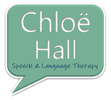The importance and impact of Speech & Language
Around 10% of all children and young people have long term and persistent speech, language and communication needs (SLCN).[1]
Providing speech & language support is a valid use of pupil premium funding.
- 50-90% of children with persistent SLCN go on to have reading difficulties.
- 2 -3 children in every class of 30 start school with developmental language disorder.[2]
- In areas of poverty, upwards of 50% of children start school with delayed communication skills.[2]
- Vocabulary at school entry is nearly one year behind for children of low income families compared to their counterparts and that the gap in language is far greater than gaps in other cognitive skills. [2]
Providing speech & language support is a valid use of pupil premium funding.
[1] http://www.talkingpoint.org.uk/slts/impact-slcn
[2]thecommunicationtrust.org.uk/media/2612/communication_difficulties_-_facts_and_stats.pdf
[2]thecommunicationtrust.org.uk/media/2612/communication_difficulties_-_facts_and_stats.pdf
Communication skills are vital for children starting school and for improving social mobility throughout a child’s education. We should be very concerned that almost 1 in 5 children aged 5 is behind in speech and language development.”
"Those who fail to receive help are at greater risk of falling behind in education, or developing behavioural problems. There are far too many children who have ended up in youth custody, who had speech & language problems at school.
- Anne Longfield, the Children’s Commissioner for England
What I can provide to Schools
- Assessment of children’s speech and/or language needs.
- Weekly, fortnightly, half termly or termly intervention as desired.
- Advice and recommendations.
- Programmes devised specifically suited to each child’s needs, and demonstrated to those supporting the child for effective carryover.
- Training opportunities.
- 1:1 or small group therapy sessions run in conjunction with designated staff to develop their own confidence, skills and knowledge.
- Specialist knowledge and experience of developmental language disorder.




